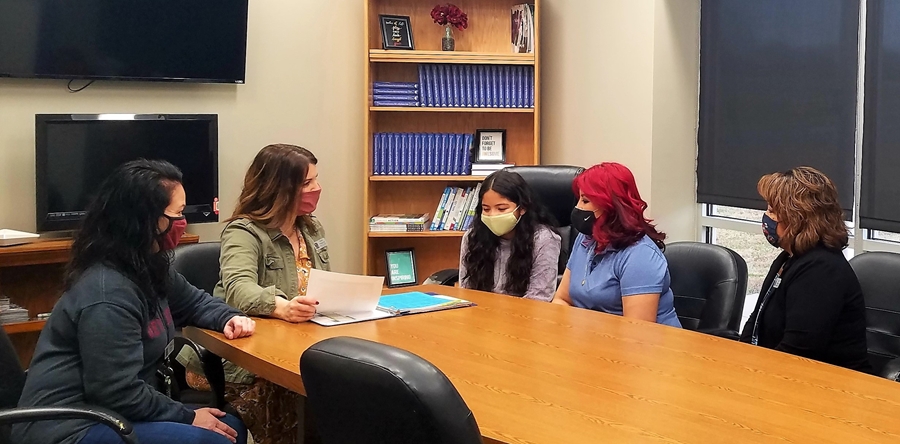
A new credential is available to Arkansans who want to be professional oral language interpreters in educational settings that serve children from birth through 12th grade.
The Arkansas Bilingual Interpreter Credential in Education is the first credential of this kind in the country.
"Qualified interpreters are important to effectively support and engage families," said Brenda Reynolds, director of Partners for Inclusive Communities' Welcome the Children project. "Just because someone is bilingual doesn't mean they are qualified to conduct interpreted meetings. It's a skill, with a code of ethics and standards of practice."
Often, students are asked to interpret for their parents during school meetings. Teachers who speak a language other than English may also be asked to serve as stand-in interpreters. Neither is appropriate or legal under the Individuals with Disabilities Education Act, or Title VI of the Civil Rights Act, Reynolds said.
There are similar credentials for medical and court interpreters, but there wasn't an option for educational interpreters. Since there's different terminology and procedures in educational settings, the credentials aren't interchangeable.
The educational interpreter credential was piloted in 2018 as a 40-hour, in-person training. Due to COVID-19, it's being presented virtually and includes additional content on Virtual Remote Interpretation.
Partners for Inclusive Communities' Welcome the Children Project developed the credential through a multi-year collaborative process involving interpreters and educators. It's endorsed by the Arkansas Department of Education and the Arkansas Department of Human Services' Division of Child Care and Early Childhood Education.
Partners for Inclusive Communities is administratively located in the University of Arkansas' College of Education and Health Professions and has a main office in Little Rock. Partners' mission is inclusion of people with disabilities in community life.
Aida Kuettle, a teacher at Morrilton High School who also coordinates English to Speakers of Other Languages in her school district, recently earned the credential. She completed the intensive training, which required her to show language proficiency through a prerequisite oral language fluency assessment in English and her target language. She was also required to pass a series of exams and participate in activities to demonstrate proficiency, fluency, accuracy, and extensive knowledge of the code of ethics while practicing different modes of interpreting.
"Obtaining this credential allows me to provide the best interpreting services by following a code of ethics, proficiency, accuracy, and confidentiality," Kuettle said. "And it will allow my school district to provide the best services available for ESOL students and their families."
Since the training was offered virtually, people across the state were able to participate. Future trainings will also be available virtually.
"One of the most valuable resources that we received through this program was the opportunity to network with other professionals in our field who may have encountered similar challenges when interpreting," Kuettle said. "We had an exceptional support system of wonderful educators and staff who encouraged us every step of the way. The training staff was especially inspiring."
Although the credential has been available in Arkansas for two years, interest has picked up recently among those seeking the unique certification. Kuettle is grateful for the opportunity and said she believes in the program so much that she plans to volunteer.
"I recommend this program to all bilingual professionals of all languages and levels of experience," she said. "We can all contribute to creating a growing community of licensed interpreters by highlighting the importance of the role that interpreters have in educational settings — from special education meetings, parent-teacher conferences, counselor programs, ESL programs as well as community and social programs in our state."
For more information, contact Brenda Reynolds at bkreynol@uark.edu.
Contacts
Shannon G. Magsam, director of communications
College of Education and Health Professions
479-575-3138, magsam@uark.edu